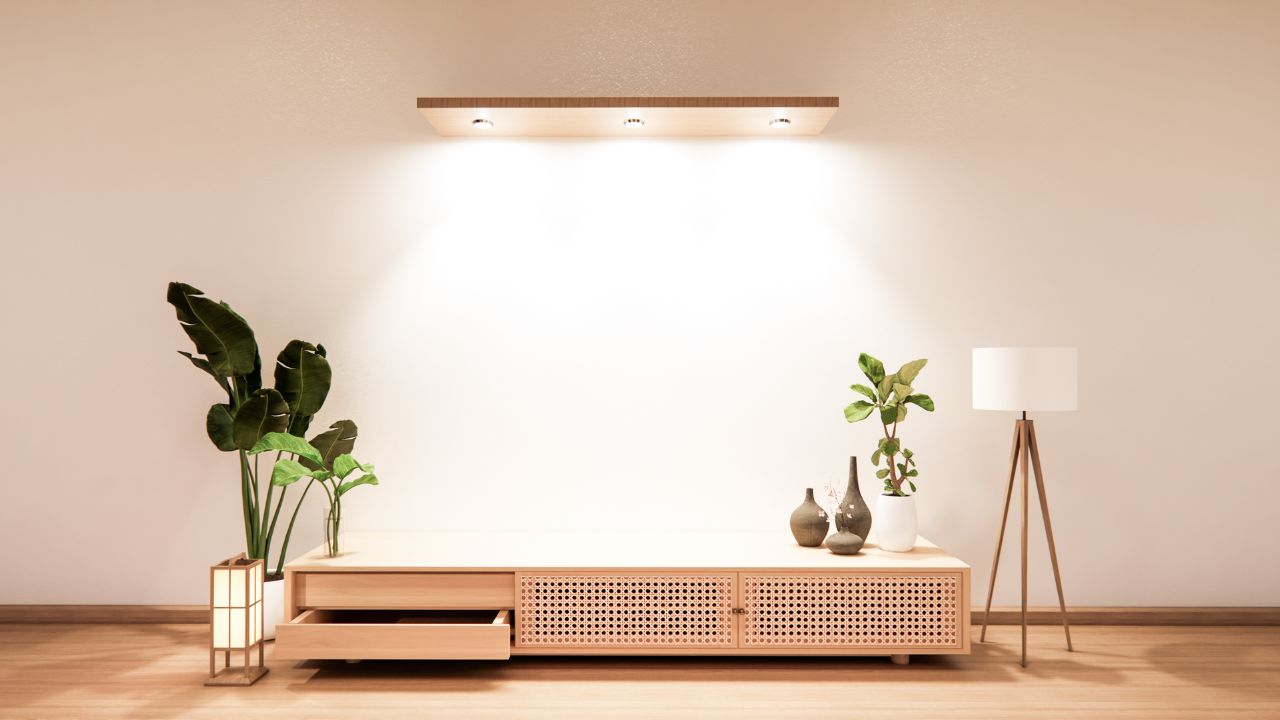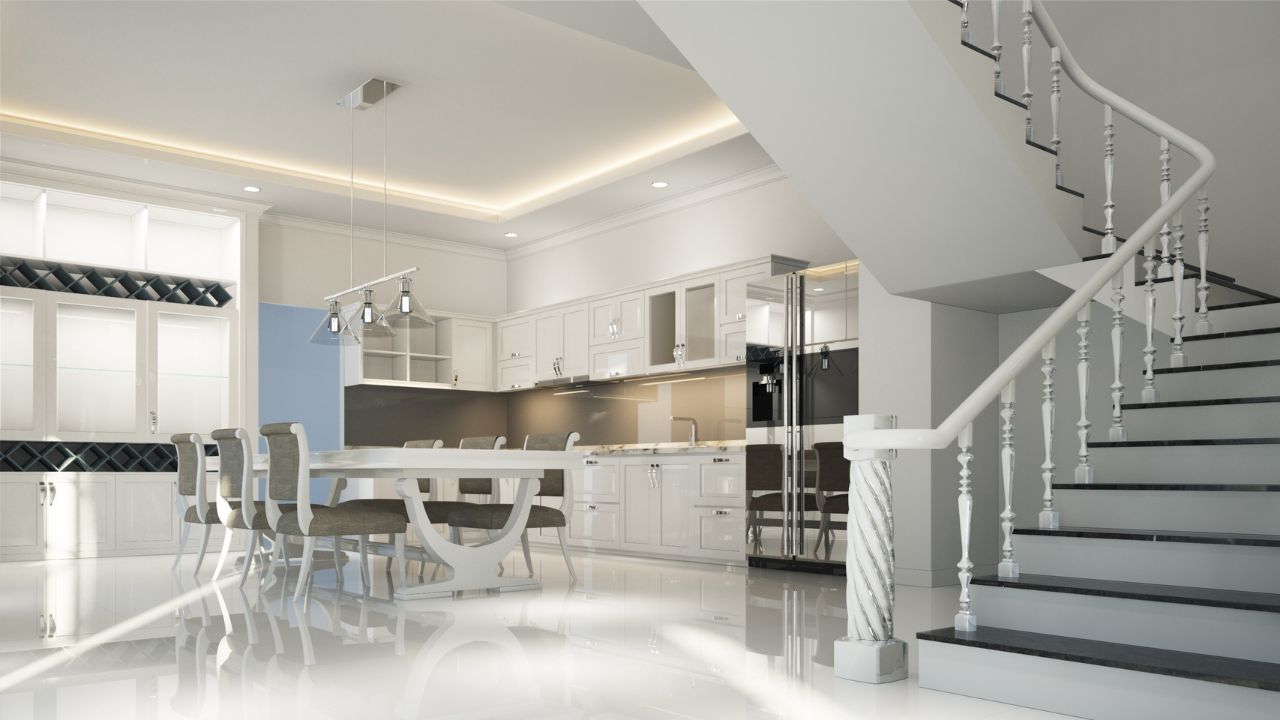
In today's ever-evolving world, ensuring the safety and security of our homes is of utmost importance. With the rapid advancements in technology, home automation systems offer a comprehensive solution to safeguarding our living spaces.
This article explores the top 10 automation systems for security, ranging from wireless security cameras and smart door locks to panic buttons and outdoor security cameras. Stay informed and empowered as we delve into the technical details of these cutting-edge systems designed to provide you with peace of mind and freedom.
Wireless Security Cameras
Wireless security cameras provide an effective means of monitoring one's home with ease and convenience. With the advancement in technology, these cameras have become increasingly popular for homeowners who desire freedom and control over their home security.
When it comes to choosing the right wireless camera, there are a few key factors to consider. Firstly, opt for a camera that offers high-resolution video quality to ensure clear and detailed footage. Additionally, look for cameras that have night vision capabilities for round-the-clock monitoring.
DIY installation tips are also crucial for those who prefer to set up their security system independently. Look for cameras that come with user-friendly instructions and are easy to mount or position.
Smart Door Locks
Smart door locks offer advanced security features and convenient access control for homeowners. With DIY installation options and cost-effective home protection, these smart locks are becoming increasingly popular in the market.
DIY installation allows homeowners to save on professional installation fees and gives them the freedom to set up the system according to their preferences. Smart door locks provide keyless entry, allowing homeowners to unlock their doors using their smartphones or a unique code, eliminating the need for physical keys.

Some smart locks also offer additional security features such as tamper alerts, door activity monitoring, and integration with home automation systems.
With smart door locks, homeowners can have peace of mind knowing that their homes are secure and protected, all while enjoying the convenience and freedom that these devices offer.
Video Doorbells
Video doorbells provide homeowners with an additional layer of security and convenience, allowing them to monitor and interact with visitors at their front door remotely. With the latest video doorbell models, you can enhance your home security without compromising your freedom.
Here are some top video doorbell options and DIY installation tips to get you started:
- Ring Video Doorbell: This popular choice offers HD video, two-way audio, and motion detection capabilities.
- Nest Hello: With facial recognition technology and continuous recording, this doorbell ensures maximum security.
- Arlo Video Doorbell: It boasts a wide field of view, customizable motion zones, and night vision for clear footage day and night.
- Eufy Security Video Doorbell: This wireless doorbell provides excellent video quality and AI-powered detection.
When installing your video doorbell, make sure to follow the manufacturer's instructions carefully and position it at a height that captures the best view of your front porch. Remember to secure your Wi-Fi network and regularly update your doorbell's firmware to stay protected.
Security Alarm Systems
When it comes to security alarm systems, one of the key decisions homeowners have to make is whether to opt for wireless or wired systems.
Wireless alarm systems offer the advantage of easy installation without the need for drilling or running wires.

Wired systems provide a more reliable and stable connection.
Additionally, there are DIY installation options available for both types of systems, allowing homeowners to save on installation costs and have more control over their security setup.
Wireless Vs. Wired
There are distinct advantages and disadvantages to both wireless and wired security alarm systems. Here are the pros and cons of each:
- Wireless Security Alarm Systems:
- Pros:
- Wireless systems offer flexibility and easy installation.
- They can be easily moved or expanded without the need for drilling holes.
- They also provide remote access and control through smartphones or tablets.
- Cons:
- Wireless systems are susceptible to interference from other devices or even hacking attempts.
- They may also require regular battery replacements, which can be inconvenient.
- Wired Security Alarm Systems:
- Pros:
- Wired systems are known for their reliability and stability.
- They are less prone to interference and offer a higher level of security.
- They also do not rely on batteries, ensuring constant operation.
- Cons:
- Wired systems require professional installation and may involve drilling holes for wiring.
- They also lack the flexibility of wireless systems and are not easily expandable.
When choosing between wireless and wired security alarm systems, it is essential to consider your specific needs and preferences, as well as the level of security you desire.
DIY Installation Options?
For homeowners looking to install security alarm systems themselves, there are various DIY installation options available. DIY installation offers several benefits, including cost savings, flexibility, and the freedom to customize the system according to individual needs.
To ensure a successful DIY installation, here are some tips to consider:
- Research and plan: Take the time to understand the different types of security alarm systems and components available in the market. This will help determine the best system for your home.
- Follow instructions carefully: Read the installation manuals provided by the manufacturer and follow the step-by-step instructions. This will ensure proper installation and functionality of the system.
- Test the system: After installation, conduct thorough testing to ensure all components are functioning correctly. This includes checking sensors, alarms, and connectivity.
- Seek professional help if needed: If you encounter any difficulties during the installation process, don't hesitate to seek assistance from professionals.
Smart Smoke Alarms
Smart smoke alarms are an essential component of a comprehensive home security system. These devices offer several benefits, including early detection of potential fire hazards, immediate alerts to homeowners, and integration with automation systems for seamless control and monitoring.

With their compatibility with automation systems, smart smoke alarms allow users to remotely monitor and manage their home's safety, providing a cost-effective and efficient solution for home protection.
Benefits of Smart Smoke Alarms
Smart smoke alarms offer numerous benefits due to their advanced technology and ability to integrate seamlessly with home automation systems. These benefits include:
- Enhanced safety: Smart smoke alarms provide an extra layer of protection by detecting smoke and fire early on, allowing residents to take immediate action.
- Remote monitoring: With smart smoke alarms, homeowners can remotely monitor their homes for any signs of smoke or fire through their smartphones or other internet-connected devices.
- Integration with smart home systems: Smart smoke alarms can be easily integrated with other smart home devices, such as security cameras or smart locks, creating a comprehensive home security system.
- Real-time alerts: In the event of a fire, smart smoke alarms can send real-time alerts to homeowners, emergency services, and designated contacts, ensuring a swift response and minimizing potential damage.
Compatibility With Automation Systems
The seamless integration of smart smoke alarms with home automation systems allows for a comprehensive and streamlined approach to home security.
With automation integration, homeowners can monitor their smoke alarms remotely and receive instant notifications on their smartphones or tablets in case of any emergencies. This feature ensures that even if homeowners are away from home, they can still take immediate action to protect their property and loved ones.
Moreover, smart smoke alarms can be connected to voice control systems, allowing users to control and manage their alarms through simple voice commands. This level of compatibility enables a hands-free and hassle-free experience, providing homeowners with the freedom to focus on other important tasks while ensuring the safety of their homes.
Cost-Effective Home Protection
By incorporating smart smoke alarms into your home automation system, you can achieve cost-effective home protection and enhance the overall security of your property.
Smart smoke alarms offer a range of features that go beyond traditional smoke detectors, providing you with advanced monitoring and notification capabilities.

Here are four reasons why smart smoke alarms are a valuable addition to your home automation system:
- Early detection: Smart smoke alarms use advanced sensors to quickly detect smoke or fire, allowing you to take immediate action and prevent further damage.
- Remote monitoring: With home automation integration, you can receive instant alerts on your smartphone or tablet if the smoke alarm is triggered, even if you're not at home.
- Integration with other devices: Smart smoke alarms can be connected to other home automation devices, such as smart thermostats, to automatically turn off HVAC systems in case of a fire, reducing the spread of smoke and flames.
- Energy efficiency: By integrating smart smoke alarms into your home automation system, you can ensure that they are only active when needed, saving energy and reducing false alarms.
Window Sensors
Implementing window sensors is an effective way to enhance the security of your home automation system. Window sensors are small devices that are installed on windows and can detect when they are opened or closed. They work by using magnetic sensors that trigger an alarm or send a notification to your smartphone whenever a window is opened.
One of the main benefits of window sensors is their DIY installation tips, which means you can easily install them yourself without the need for professional help. This saves you time and money.
Additionally, window sensors provide an extra layer of security by adding an additional entry point to your home automation system. This means that even if an intruder manages to bypass other security measures, the window sensors will still detect their presence and alert you immediately.
Garage Door Controllers
One essential component to consider in securing your home automation system is the integration of garage door controllers. These devices allow you to remotely control and monitor your garage door, providing an added layer of security to your home. With the advancement of technology, garage door openers have become smarter and more sophisticated, offering features such as remote access and smartphone connectivity.
Here are four reasons why garage door controllers are a must-have for any security-conscious homeowner:
- Convenience: With remote access capabilities, you can open and close your garage door from anywhere, eliminating the need for physical keys or remotes.
- Enhanced Security: Garage door controllers allow you to receive real-time notifications whenever your garage door is opened or closed, giving you peace of mind and the ability to respond quickly to any potential security breaches.
- Integration with Home Automation Systems: These controllers can seamlessly integrate with your existing home automation system, allowing you to control your garage door along with other smart devices in your home.
- Improved Accessibility: For individuals with mobility issues, garage door controllers provide easy access to their homes without the need for physical exertion or assistance.
Investing in a garage door controller is a smart choice for anyone looking to enhance the security and convenience of their home. With remote access and advanced features, you can have the freedom to control your garage door with ease, giving you peace of mind and a sense of security.

Flood Sensors
Flood sensors are essential components in a comprehensive home automation security system, providing early detection and alerting homeowners to potential water damage. These sensors are designed to detect water leaks, rising water levels, or any other signs of flooding in order to prevent extensive water damage.
They are typically installed in areas prone to water leaks or flooding, such as basements, laundry rooms, or near water heaters and washing machines. Flood sensors work by using various detection methods, including moisture or water sensors, and can be connected to a home automation system to send immediate notifications to homeowners.
To continue ensuring comprehensive home automation security, the next essential component to discuss is the inclusion of panic buttons. Panic buttons are a vital feature of any home safety system, providing an immediate response in emergency situations.
Here are four reasons why panic buttons are a must-have for your home:
- Instant access to help: With a panic button installed, you can quickly summon assistance with just the touch of a button, ensuring a rapid response in case of a threat or medical emergency.
- Peace of mind: Knowing that help is just a button press away can provide a sense of security and peace of mind for you and your loved ones, allowing you to enjoy the freedom of a worry-free environment.
- Enhanced personal safety: Panic buttons can be strategically placed throughout your home, giving you the ability to activate them from any location, ensuring your safety no matter where you are.
- Deterrence against intruders: The mere presence of panic buttons can serve as a deterrent to potential intruders, making your home less attractive as a target.
Outdoor Security Cameras
Continuing the discussion on comprehensive home automation security, another crucial component to consider is the integration of outdoor security cameras.
Outdoor security cameras provide an extra layer of protection by monitoring the perimeter of your home and capturing any suspicious activities.
When installing outdoor security cameras, it is important to consider the placement for optimal coverage. Strategic placement of cameras at entry points, such as doors and windows, will help deter potential intruders.

Additionally, incorporating outdoor security lighting can further enhance the effectiveness of your security system by illuminating dark areas and making it easier to identify any intruders.
Frequently Asked Questions
Can I Integrate Multiple Automation Systems for Security Into One Central Control System?
Yes, it is possible to integrate multiple automation systems for security into one central control system. This offers several benefits such as streamlined management, enhanced efficiency, and a comprehensive overview of your home's security status.
Are There Any Monthly Subscription Fees Associated With Using These Automation Systems?
Monthly subscription fees for automation systems can vary depending on the provider. Some systems offer free basic features, while others require a subscription for advanced functionality. When choosing an automation system, consider the pros and cons of monthly fees and opt for one that meets your security needs without additional costs.
Can I Access the Live Feed of My Security Cameras Remotely Through a Mobile App?
Yes, most automation systems for security offer the ability to access the live feed of security cameras remotely through a mobile app. This allows for convenient and real-time monitoring of your property from anywhere.
How Long Does the Battery of Wireless Security Cameras Typically Last?
The battery life of wireless security cameras varies depending on factors such as usage, camera quality, and battery capacity. To maximize battery life, consider installation tips, troubleshooting guides, and choosing reputable brands. Additionally, cost comparison, outdoor vs indoor cameras, night vision capabilities, cloud storage options, and wireless range limitations should be taken into account.
Are These Automation Systems Compatible With Voice-Controlled Assistants Like Amazon Alexa or Google Assistant?
Voice-controlled assistants like Amazon Alexa and Google Assistant are compatible with many automation systems for security. This integration allows users to conveniently control their security devices and access additional features, enhancing the benefits of automation systems for security.
 Business & FinanceHealth & MedicineTechnologyLifestyle & CultureScience & EnvironmentWorld NewsPrivacy PolicyTerms And Conditions
Business & FinanceHealth & MedicineTechnologyLifestyle & CultureScience & EnvironmentWorld NewsPrivacy PolicyTerms And Conditions
